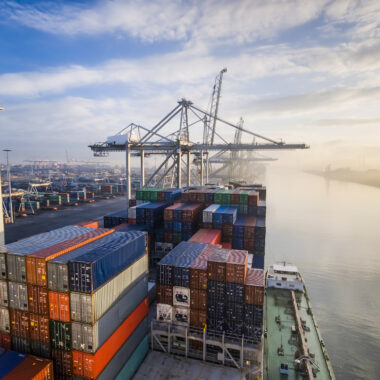Find out more about where the UK economy is heading with our specialist guest speakers Q&A
Has the UK economy turned a corner?
Following December’s decisive election outcome, the so-called ‘Boris-bounce’ has seen a number of economic dials begin to flicker with increased fervour as businesses take advantage of a new-found degree of certainty. But are we out of the woods yet? We caught up with Justin Urquhart-Stewart, Co-founder of Seven Investment Management, and the Bank of England’s Alex Golledge to get their take on recent developments and what they mean for the economy in the months ahead…

We’ve seen signs of growth in the UK economy since the turn of the year. What impact has that had on monetary policy?
Alex: The primary objective of the Monetary Policy Committee (MPC) is to return UK inflation – based on the Consumer Price Index (CPI) measure – to its 2% target in the medium term. The MPC cares as much about inflation being under target (currently it is 1.8%) as it does about inflation being over target.
At their most recent policy meeting at the start of February, the MPC judged that the best action to bring inflation back to its 2% target was to leave the interest rate unchanged at 0.75% and monitor the data as it comes through for 2020. It’s difficult to look too far into the future given current economic circumstances but, there are few signs that pent-up demand is being released in survey data and so it would be sensible to see if these indicators come true over the next few months.
The narrative has changed a little over the past 12 months. Previously, the discussion had been around when the right time was to tighten policy, but with Brexit and a weaker global economy, the consideration more recently has been about whether we should look to cut interest rates. Ultimately, though, it’s very early days and we’re in a period where ‘wait and see’ is the right approach.
Political clarity brought by the recent general election, combined with the outline of a withdrawal agreement, has put the wind in the sails of some UK businesses and households but the outlook long-term still isn’t clear enough to indicate what course of action is necessary for monetary policy.
So the message is to sit tight here in the UK. Justin, how would you characterise the international picture?
Justin: I’d suggest business owners need to be prepared for more volatility even though the global economy is in relatively good health. China will continue to grow – although coronavirus may curtail the rate at which it does – and we can expect to see further low and slow improvements in the Eurozone. Meanwhile, the US under Donald Trump is experiencing something of an economic sugar rush. As with all stimulation, the buzz in the US will eventually decline but I would still expect their economy to keep delivering growth in 2020 and beyond.
While Trump’s tenure has been particularly erratic, I’d argue that the US remains in a stronger position than Britain given the uncertainty that will likely return as we edge nearer to our exit from the EU.
So what should businesses be doing to prepare?
Justin: Confidence runs the economy so it’s critical that businesses continue to back themselves and have an investment plan. The UK is very much a nation of entrepreneurs capable of achieving success with or without high levels of government support. My advice would be to stick to your guns; not to expect handouts and continue to gather the information and support you need to deliver on your plans.
Justin and Alex will be speaking alongside Iain Wright, Director for Business and Industrial Strategy at ICAEW, at our annual economic conference in Chelmsford on Thursday 5 March.







